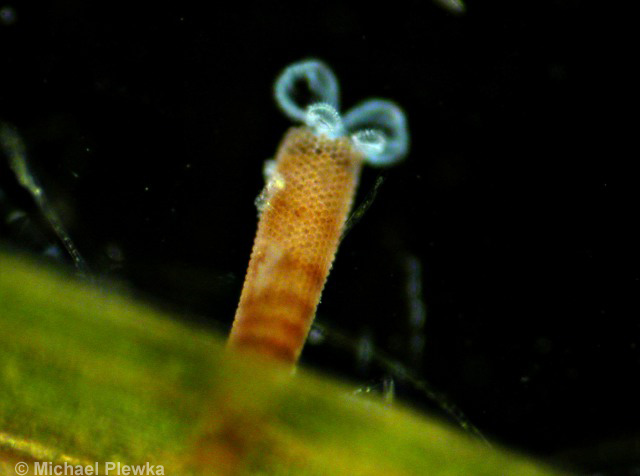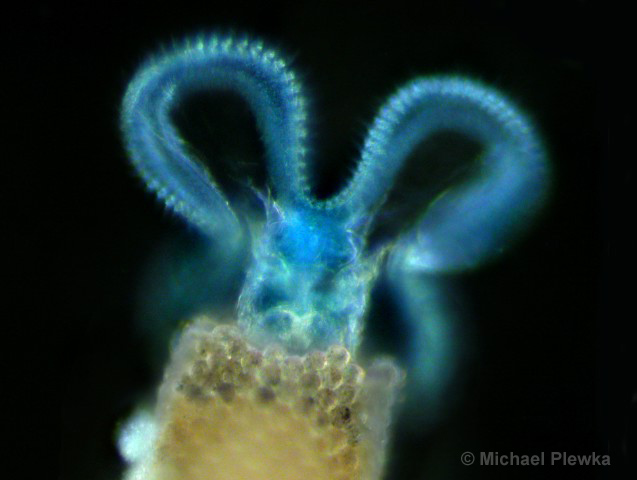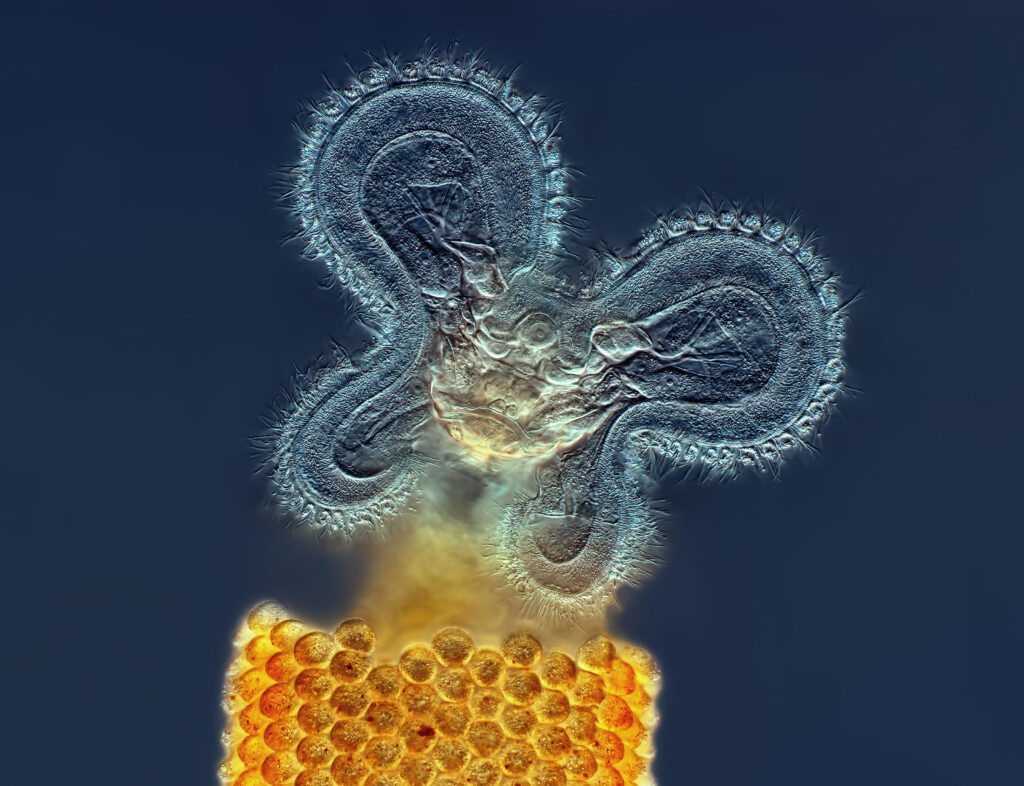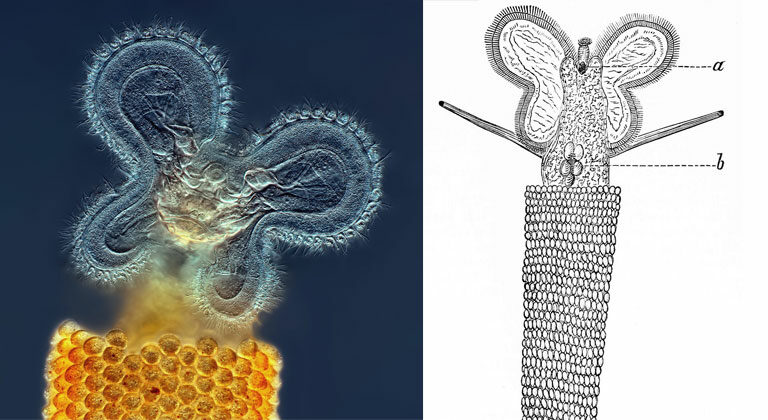Rotifer Floscularia ringens, commonly known as the trumpet animalcule, is a microscopic freshwater invertebrate that belongs to the phylum Rotifera. It is a sessile organism, meaning it is anchored to a substrate or sediment by a stalk. This tiny creature has a bell-shaped, transparent body and is named for its trumpet-like shape.
Floscularia ringens has a distinctive crown of ciliated tentacles, which it uses to capture food such as small organisms and planktonic particles. The tentacles are arranged in two whorls, with the outer whorl consisting of longer, more rigid tentacles and the inner whorl consisting of shorter, more flexible ones. These tentacles generate a water current that draws food particles towards the mouth of the organism.
The trumpet animalcule is also known for its unique method of reproduction. It reproduces asexually by forming daughter colonies, which bud off from the parent colony and develop into independent individuals. These daughter colonies can also form their own daughter colonies, creating a complex colony structure. The offspring colonies remain attached to the parent colony through a shared stalk.

Floscularia ringens plays an important ecological role in freshwater ecosystems. As a primary consumer, it feeds on small organisms and planktonic particles, and is in turn consumed by higher trophic level organisms. It is also important in the nutrient cycling of freshwater ecosystems, as it contributes to the breakdown of organic matter and the recycling of nutrients.
Overall, Floscularia ringens is an interesting and unique member of the freshwater ecosystem, contributing to the complexity and diversity of these important habitats.



